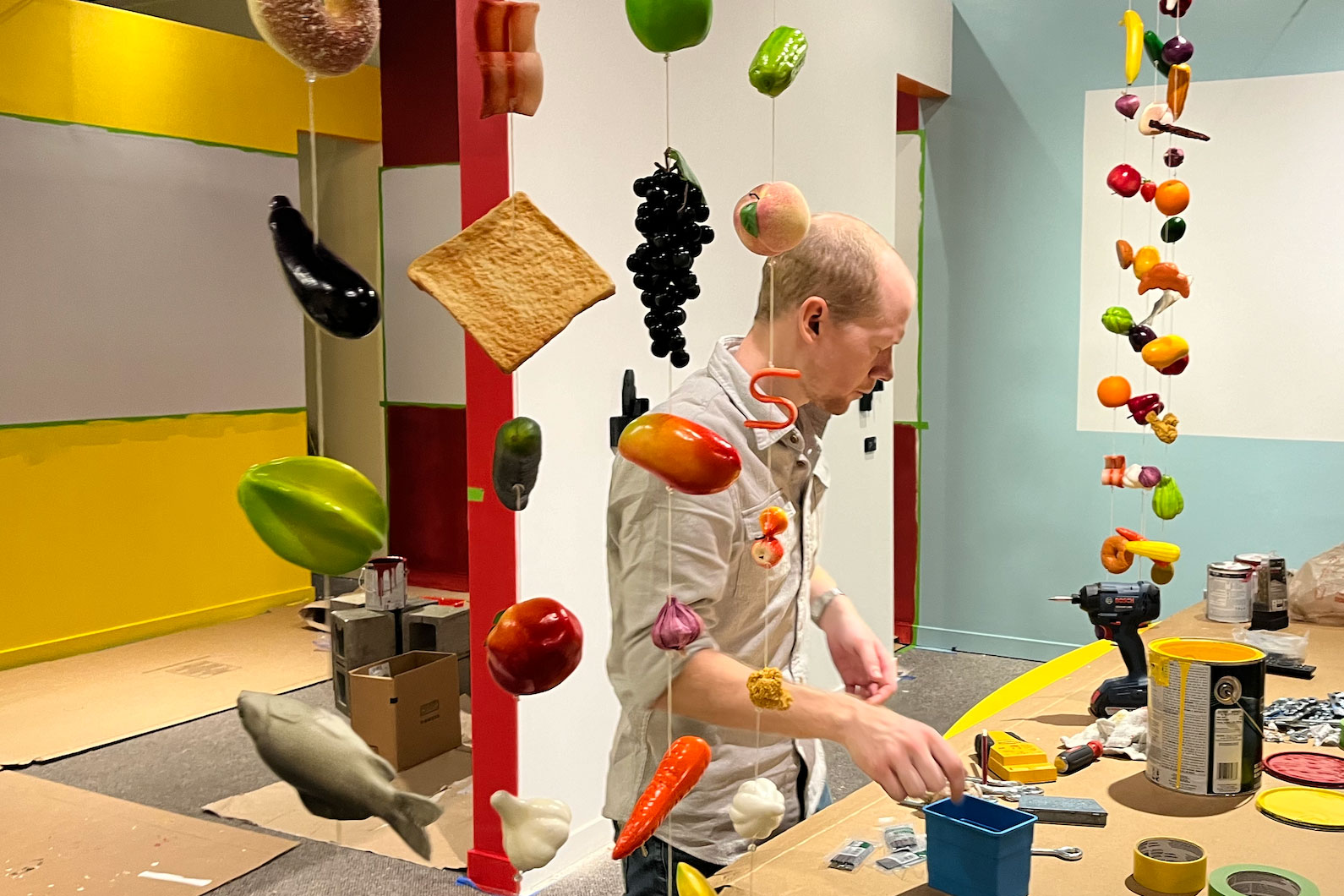Access to nutritious food is fundamental to our survival. Yet, according to the United Nations Committee on World Food Security, the combination of “a changing climate, growing global population, rising food prices and environmental stressors will have significant, yet uncertain, impacts on global food supply in the coming years.” Our ability to navigate these challenges and create more resilient, equitable, and just food systems plays a critical role in our future.
"Food Fight!" the MSU Museum’s newest exhibition, explores the social, environmental, political and economic relationships humans have with food. On view from January 9 to June 29, 2024, “Food Fight!” features over 30 associated programs and unites artists, scientists, researchers and students — both national and international — including researchers from MSU.
“At the MSU Museum, we are committed to pioneering new models for academic museums by bringing together exciting new research and creative works that address complex global challenges,” said MSU Museum Director Devon Akmon. “Our ‘Food Fight!’ exhibition embodies this mission by exploring the intricate relationships within our global food systems and stimulating critical conversations on creating more resilient, equitable and just solutions for the future.”
The exhibition was curated through a global open call for interdisciplinary proposals led by the MSU Museum’s CoLab Studio — a unit within the museum focused on innovation and experimentation at the nexus of art, science, cultures and technology.
“From scrutinizing the design and environmental footprint of food production and consumption patterns to confronting the challenges of food security, ‘Food Fight!’ intricately examines our individual and collective relationships with food,” said Mark Sullivan, creative director of the MSU Museum CoLab Studio. “This exhibition sparks contemplation through thought-provoking inquiries, including envisioning the future of food and food systems, evaluating the environmental impact of agricultural practices and understanding the interplay between personal food relationships and societal interactions.”
The curatorial team — which includes CoLab Studio staff, MSU students and faculty — selected seven exhibits to include in the exhibition. Among the exhibitors is Natalia Carminati, a multimedia artist based in Barcelona, Spain. Her work explores food sovereignty and industrialization through “Super Mario Corn,” a version of the popular Super Mario Nintendo games.
An exhibit by U.K.-based artists Anna Dumitriu and Alex May highlights genetically modified chicory plant cells that will enable audiences to reflect on the processes used to create these novel plants and the potential benefits of new plant breeding technologies.
Another highlight of the exhibition is a multimedia installation reflecting Anishinaabeg relationships with food. It was created as a collaboration between a team of Anishinaabe women from several Indigenous communities, some of which are associated with MSU as faculty or students. In conjunction with this exhibition, the Peshawbestown Dancers and Singers will present “Stories and Reflections from Gichigami,” a cultural presentation that shares their community’s relationships with food through Anishinaabe song and dance.
While “Food Fight!” is on view, a portion of the MSU Museum’s main gallery will transform into the “Food Fight! Commons” — a space for public programming open to community reservations. The museum will host an array of events in the space, including performance art, expert panels, community conversations, film screenings, a poetry slam and more.
“Food Fight!” is generously supported by Michigan State University Federal Credit Union Choose Lansing and the Michigan Arts and Culture Council.
Join the MSU Museum for a public opening reception on Thursday, Jan. 11 from 5 to 7 p.m. The museum is located on 409 West Circle Drive next to Beaumont Tower on the MSU campus. Visitor parking is available at metered spaces at the Grand River Ramp, one block away at the corner of Grand River Avenue and Charles Street.
Visit the MSU Museum website for additional information and a comprehensive list of public programs. For the history of the CoLab Studio, check out arts.msu.edu/story/beyond-collaboration.

